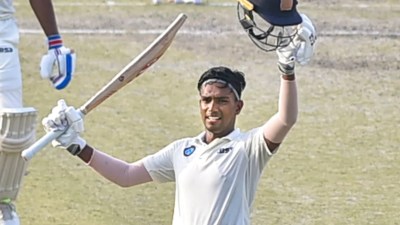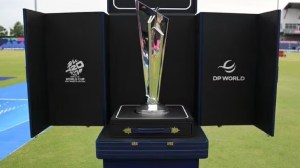Click here to follow Screen Digital on YouTube and stay updated with the latest from the world of cinema.
Mani Ratnam reveals that they didn’t have a bound script for Nayakan, shares his favourite moments from the film
Mani Ratnam revealed that the script of Nayakan was never actually written and that much of it was shaped during the process of production.
 Mani Ratnam says the most powerful moments from Nayakan are the ones that were improvised on set.
Mani Ratnam says the most powerful moments from Nayakan are the ones that were improvised on set.As Mani Ratnam gears up for the release of his upcoming film Thug Life starring Kamal Haasan, the acclaimed filmmaker took a moment to reflect on one of the most iconic collaborations of his career, Nayakan. In a recent conversation with Baradwaj Rangan, Ratnam shared memories from the making of the 1987 gangster drama, which is now widely regarded as one of the greatest Indian films ever made. Surprisingly, Ratnam revealed that the film was made without a bound script.
Talking about the making of Nayakan, the filmmaker said, “The script was not bound when I started, strangely, and maybe it was for the good, because we had very little time to prepare for it. From the time we decided to do a project to the shooting date was less than four, five months, so we had very little time. I had worked on the script, but I didn’t know how I wanted to finish the film. So that happened during the process (of shooting).”
Mani Ratnam also spoke about his favourite scene from the film, pointing to the quiet, emotional beats rather than the more dramatic set pieces. “Nayakan has got more moments, pauses, and those are the real crux of the thing. There are a lot of scenes which are important, but what made it special for me are those smaller moments, where Velu Nayakan gives the paan to his son. Those things that were spontaneously happening on the set. Now, those elevated the entire film. Those were there. But if you want me to pick one particular scene of Nayakan, I would pick that ‘Baba mar gaya’ scene. I mean that is where I got hold of the character when we were writing it. That is the person who will do something and then go and reach out to that person who is being harmed and see something that can be done to the family. I mean that gave it the opening for the entire character and for the film.”
Nayakan, loosely inspired by the life of Bombay underworld don Varadarajan Mudaliar and Francis Ford Coppola’s The Godfather (1972), had an unusual origin. Ratnam was initially approached to remake the Hindi film Pagla Kahin Ka for Kamal Haasan but declined. Instead, he pitched two original ideas, one of which resonated with Haasan and eventually became Nayakan. The film went on to become both a critical and commercial triumph, running for over 175 days in theatres. It won multiple National Film Awards, including Best Actor for Haasan, and was India’s official submission to the 60th Academy Awards in the Best Foreign Language Film category.
- 01
- 02
- 03
- 04
- 05


































